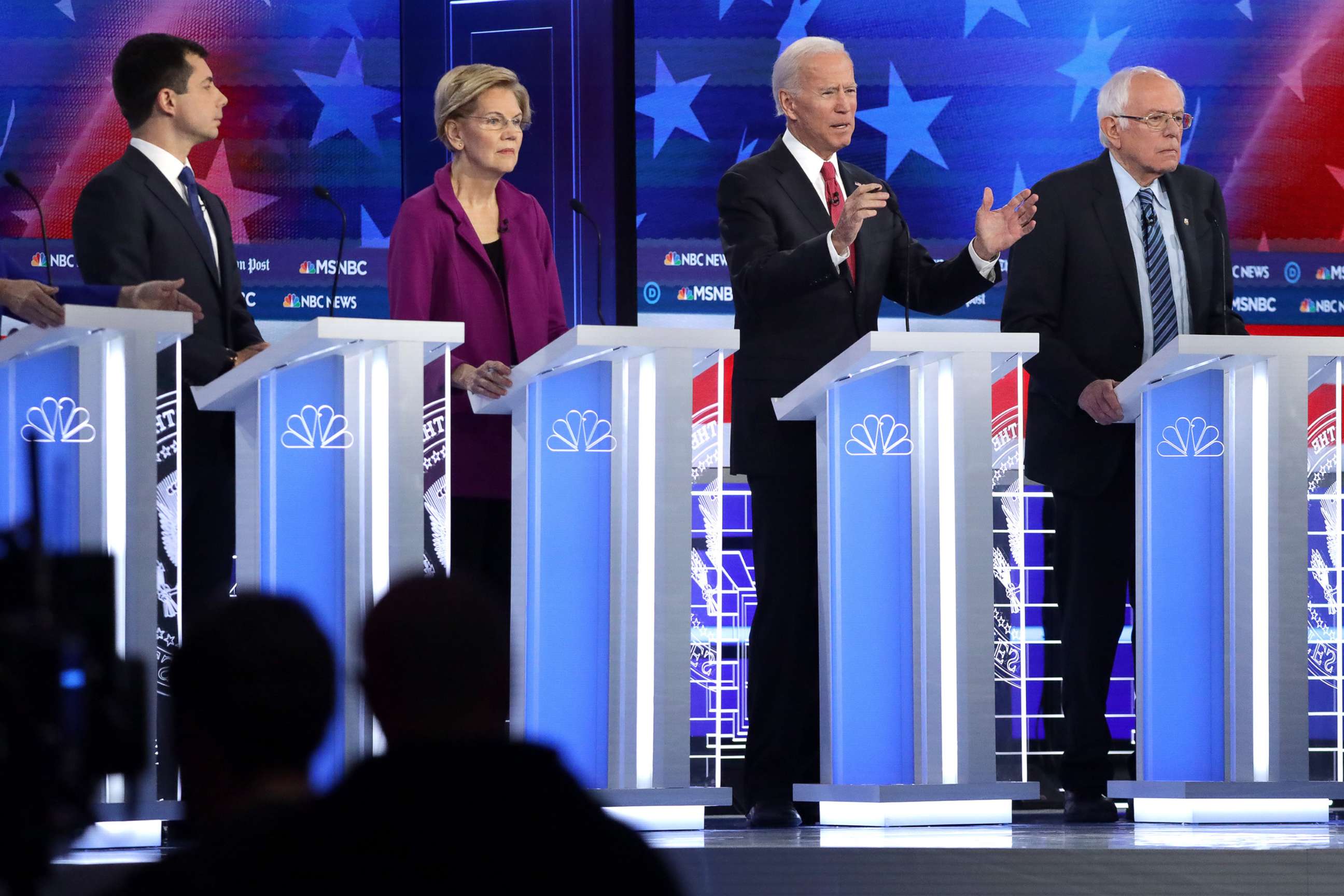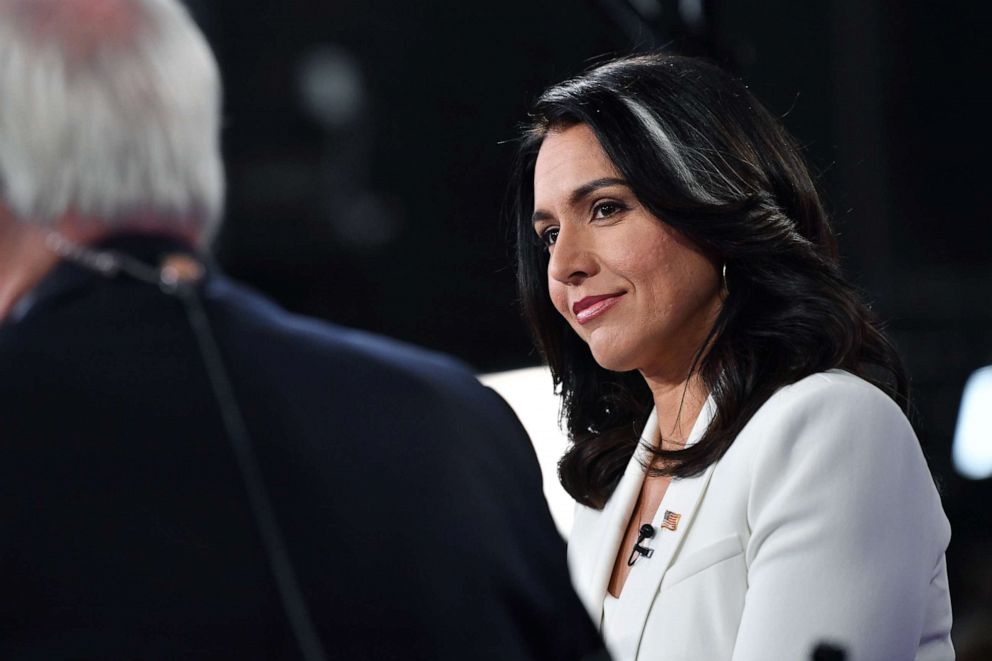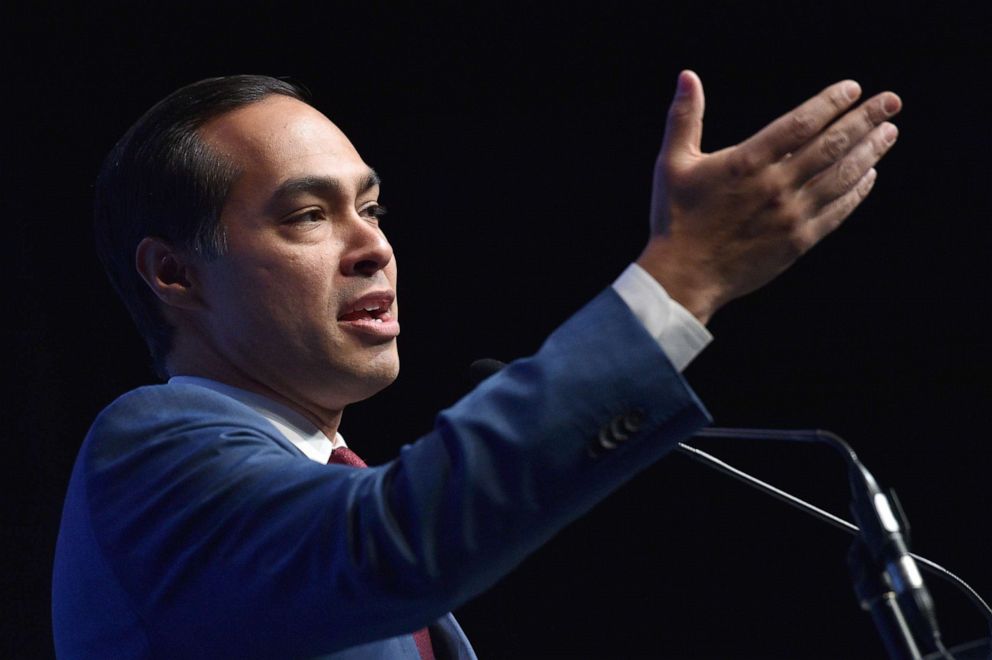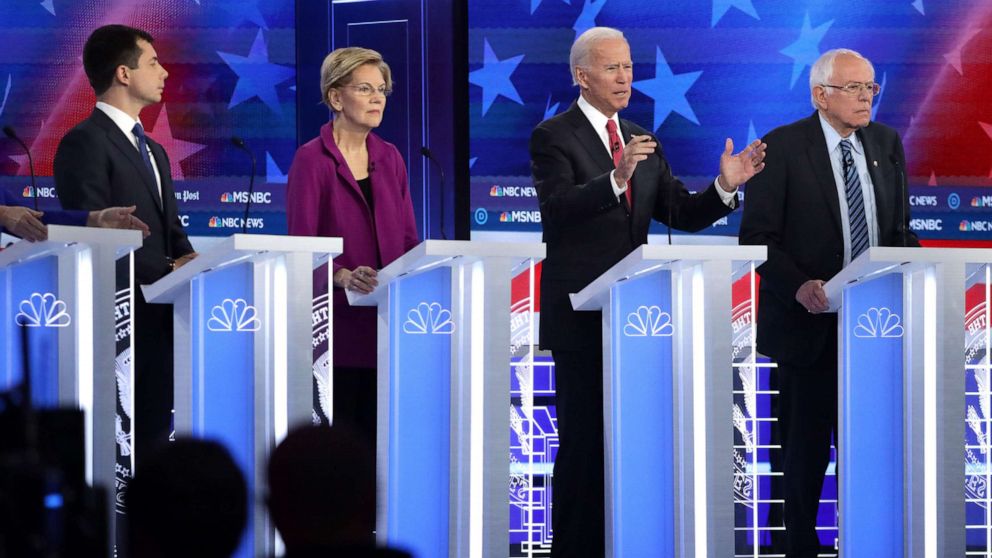7 candidates invited to face off in final Democratic primary debate of 2019: DNC
Only seven of the 15 Democratic candidates still running for president qualified for the final primary debate of 2019, the Democratic National Committee announced Friday, but all of those candidates have indicated they won't attend the debate if they have to cross a local union's picket line to do so.
In tweets Friday ahead of the DNC's announcement, all of the candidates who qualified for the debate, which is set to be co-hosted by PBS NewsHour and POLITICO, expressed their support for UNITE HERE Local 11, a union representing hospitality workers in southern California, including Sodexo-employed food service workers who are contracted to work at Loyola Marymount University, the planned site of the Dec. 19 debate. The union has been involved in contract negotiations with the company on behalf of these workers since March, and Sodexo "abruptly cancelled scheduled contract negotiations last week," according to a press release from Local 11.
"We had hoped that workers would have a contract with wages and affordable health insurance before the debate next week. Instead, workers will be picketing when the candidates come to campus," Susan Minato, co-president of UNITE HERE Local 11, said in the release.
The following candidates have qualified to attend the next debate, but said they "won't cross the union's picket line" to do so:

In a statement Friday, DNC communications director Xochitl Hinojosa said, "The DNC and LMU learned of this issue earlier today, and it is our understanding this matter arose within the last day. While LMU is not a party to the negotiations between Sodexo and Unite Here Local 11, (Chairman) Tom Perez would absolutely not cross a picket line and would never expect our candidates to either. We are working with all stakeholders to find an acceptable resolution that meets their needs and is consistent with our values and will enable us to proceed as scheduled with next week’s debate."
Two candidates who didn't qualify for the debate, New Jersey Sen. Cory Booker and former Housing and Urban Development Secretary Julián Castro, also tweeted about the dispute, both saying that the Democratic candidates shouldn't cross a picket line to participate in the debate.
Both Booker and Castro met the grassroots fundraising threshold, according to their campaigns, but failed to get any qualifying polls, according to an ABC News analysis.
The only candidate who was on the cusp of qualifying was Hawaii Rep. Tulsi Gabbard. She had met the individual donor threshold, according to her campaign, and, according to an ABC News analysis, only needed one more DNC-approved poll with at least 4% support to meet the polling threshold.
But just days before Thursday’s qualifying deadline, Gabbard announced on Twitter that she wouldn’t be attending the debate even if she did qualify, saying she’d instead be spending "that precious time directly meeting with and hearing from the people of New Hampshire and South Carolina."
Gabbard has been critical of the debate qualifying guidelines before, taking issue with which polls are accepted by the DNC. She also didn’t qualify for the September debate.

The DNC, however, has defended its qualifying rules.
"This has been the most inclusive debate process with more women and candidates of color participating in more debates than billionaires… While we are legally required to have objective criteria for each debate, our qualifying criteria has stayed extremely low throughout this entire process," Hinojosa previously told ABC News. "Nobody who has failed to reach 4% at this point in the race has gone on to be the nominee, and our debate criteria reflects that."
Booker chose not to pick a fight with the DNC over the qualifying rules.
"I learned when I played football that you can be frustrated with a ref’s call, but don’t spend your time arguing with the ref. Get back in the huddle, so you can drive the ball down the field," Booker said in Iowa Sunday. "I’m in the next play now."
This will be the first debate he hasn't qualified for.
Campaign manager Addisu Demissie told reporters in a press call Thursday that instead of being in Los Angeles the day of the debate, Booker will travel to Nevada on Dec. 18 and then embark on a bus tour in Iowa on Dec. 19.
Like Booker, Castro didn’t push for changing the qualifying rules "in the middle of the game," but he did take issue with the lack of diversity on stage.
With California Sen. Kamala Harris suspending her campaign last week, Yang is now the lone candidate of color still in the race who qualified.
"My concern is not the presence of any one candidate on a debate stage, only. We need to change the whole game," Castro said Dec. 5, after Harris' departure, but before Yang had qualified for the debate.
"I don't want anybody to vote for me just because of the color of my skin or to vote against me. And I don't want anybody to vote for or against the candidate just because of the color of their skin. I do believe though that whether voters see a diverse field of candidates being able to present their case, that makes a difference," he said.

In addition to Gabbard, Booker and Castro, these are the other five remaining candidates, in alphabetical order, who did not qualify for the last debate of the year:
In order to qualify for this debate, candidates had to meet two thresholds. To meet the grassroots fundraising threshold, campaigns needed to have at least 200,000 unique donors, and a minimum of 800 individual donors per state in at least 20 states.
Candidates had two ways to meet the polling threshold. They could meet the polling threshold by getting at least 4% support in four national polls or polls out of Iowa, New Hampshire, Nevada and/or South Carolina. The polls had to be sponsored by different organizations, or if they were sponsored by the same organization, they had to cover different geographical areas.
They could also reach this threshold by getting at least 6% support in two early state polls. For this path, candidates could have two qualifying polls from the same organization and/or from the same geographical area.
The polls had to be conducted by an organization on a list set and made public by the DNC. They also had to be released between Oct. 16 and 11:59 p.m. on Thursday in order to count.
While the DNC has yet to announce the qualifying rules for any debates being held in the new year, on Thursday, they announced that the first four debates will be held in the first voting states -- Iowa, New Hampshire, Nevada and South Carolina -- ahead of their respective primary or caucus days.




